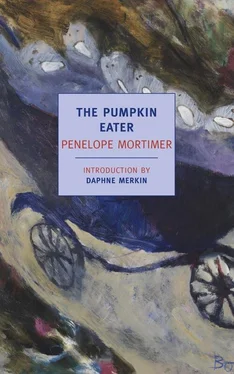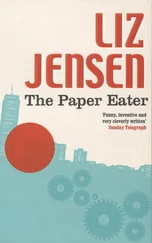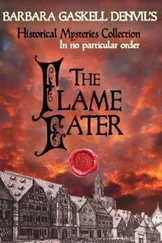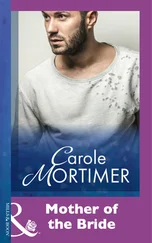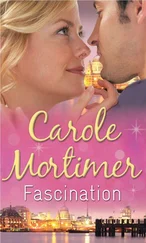“I shouldn’t think you are,” I said. “Could I get to the oven?”
“I’m in your way, I know I am. I’m sure there’s something I could do. I feel useless, and you working away like a black.”
“Anyway, you don’t look frigid,” I said, peering with some despair into the greasy cavern of the oven. “And you can’t say fairer than that.”
“It does me so much good to talk to you,” she said distantly. “It’s marvellous to talk to someone who knows . I really can’t think how you manage, I mean with so little help and all those children. Of course Jake’s a perfectly gorgeous father, I can see that. Poppy’s mad about him. Well, of course, having no father she’s mad about any man, poor little sweet, but she’s especially mad about Jake. I do wish I had half your luck, although of course I know it’s not luck really, you’re so intelligent and attractive and capable and everything, you deserve every bit of it.” There was a long pause. Being partly inside the oven I could only imagine the wistful blue eye and the pinkish strand of hair that she nervously pulled down over it. “But oh crumbs,” she said, “I do envy you.”
I don’t remember how we came to meet Philpot, but at that time we knew many minor characters in the film world, and she must have been attached to one of them. I liked her because she was lonely and eccentric and kept making little rushes at life which were, as she swore she had always known, doomed to failure. Perhaps, in a way, I envied her too. She was like girls at school who had brothers, but no love.
Every day, that summer, she turned up and mooned about our house, pushing her little awkward child into the garden and staying indoors herself, drinking in great draughts of what she called family life. She was tremendously anxious not to disturb Jake, but would tiptoe past his study door leaving such a smell of gardenia behind her that in a few moments he would come out, sniffing, and join us in the kitchen or the sitting room cluttered with patterns and pins, for we took to dressmaking at that time. There he would sprawl on the sofa and hold me with one arm while Philpot asked him about his work. She knew every detail of the film he was writing. Every day she would ask after the characters as though some mishap beyond Jake’s control might have befallen them in the night. She wore striped blouses and large skirts and usually clenched her collar with some sort of cameo brooch — she had a weakness for cameos, china hands and boots, paper weights, stuffed birds and velvet photograph frames. Occasionally she would go away for a couple of days with someone who happened to be driving to Exmoor or Cardiff or Leeds. Then we would take over Poppy, though without joy, since none of us liked her very much. She made the boys feel foolish by prodding them, and bored the girls with inaccurate descriptions of love.
4
“Why does Philpot have to stay with us?” they asked.
“She’s been turned out of her flat.”
“But why does she have to stay with us? We’ve got enough people.”
“She’s looking for another one.”
“I’ve never seen her looking. She just stays in bed all the time if you ask me.”
“In my bed, too. Why can’t she bring her own bed? I’m not going to sleep in that awful cot again.”
“It’s a perfectly good cot.”
“It’s not, and I’m not going to sleep in it.”
“Look, there’s a squirrel.”
“I’m not going to sleep in that cot.”
“Where’s Poppy?”
“Poppy’s staying with her aunt.”
“Then why can’t Philpot stay with her aunt?”
“Because Philpot’s aunt lives in Gloucestershire and Philpot can’t look for a flat, I mean couldn’t look for a flat if she was in Gloucestershire.”
“She could come in a helicopter.”
“I’m not going to sleep in that cot.”
“I’m glad Poppy’s in Australia.”
“Must you wade in the puddles? You don’t have to wade in them.”
“Well, I wish she’d go home, that’s all.”
“She can’t. She hasn’t got a home.”
“She smells of fish.”
“No, she doesn’t. She smells like roses rather.”
“She smells like roses and fish, but fish most.”
“I’m not going to sleep in that awful cot.”
“She had a spot on her chin yesterday, but this morning she’d squeezed it. Don’t tell Dad, he’d say change the conversation.”
“He had to grab her yesterday, when she fainted. It must have been awful for him, the smell.”
“Fainted?”
“She fainted when you were out for your walk.”
“Do you faint like this? Is this how you faint?”
“Oh, for heavens sake, get up! You’re smothered in mud, it’ll take me hours to brush it off, hours!”
“I was only asking.”
“I’m not going to sleep in that …”
We were spread out over quarter of a mile of Heath; converging, in a brown, sodden afternoon, on Dinah playing netball. Why should anxiety touch me? I looked across to one of London’s unexpected hills, topped with a broken steeple. Fly away home, your house is on fire. The older children, in shrunken blue duffel coats, ran pell-mell down the slope and leapt on my back. Jake’s children stamped and fell down in the wet leaves.
“I can see them,” I said, and we stumbled down into a desolate slum patch of ground scattered with a few corrugated iron sheds. Various children in short sleeved cotton jumpers and long skirts and gumboots were festooned about a great bare tree, while others made vague motions with a football in the wet grass that someone had tried to mark out with chalk. “Where’s Dinah?”
We found her shivering in the corner of the field, holding her stomach and saying she had a terrible pain. She looked at us with envy; even, it seemed to me, with affection. The mistress, a young, quite pleasant looking woman sensibly dressed in a leather coat, called “Dinah!” with the rising inflection, tinged with strain, that women use towards children at the end of a hard day. Dinah shuffled off, and the mistress pushed them all into a ragged circle and attempted to show them something. The damp, darkening afternoon was quiet except for their incessant coughing. They began to lollop about, throwing the ball with feeble gestures, from hip-level. “Keep moving!” the mistress exhorted them. “I’m going to stir you up like a pudding!” She ran amongst them, darting heavily to and fro while the children fell in the mud and held their stomachs and gazed into the foggy distance.
“Can we go now?”
“I’m cold, I’m freezing.”
“I’m not going to sleep in that cot.”
“Then run about. Run about and get warm.”
“Why should I? I’m tired.”
“Why do we have to come and see Dinah play football?”
“I’m tired …”
A girl in baggy tartan trousers, a windcheater and a fur hat came slowly over the brow of the hill. For a moment I thought she was Philpot. She dragged a pram after her and stopped, kicking the wheels viciously because they were stuck up with mud. Then, after looking down on us for a few moments, she went back the way she had come. As she was submerged, first pram and finally hat, I was irrationally convinced that she had come to give me some message from the outside world; but that like a rescue craft she had looked, seen nothing, and gone home.
5
“Is Philpot given to fainting much?”
“Fainting?”
“The children said …”
“Well? What? What did they say?”
“They said she fainted yesterday.”
“Oh. Well. Perhaps she did.”
“They said you were there. That you caught her.”
“Caught her when she fainted?”
“Yes.”
Читать дальше
